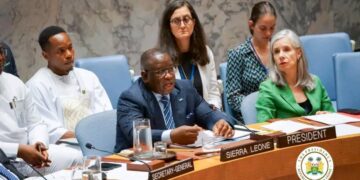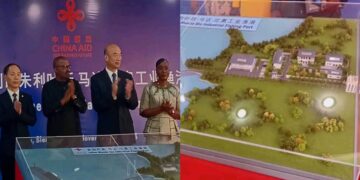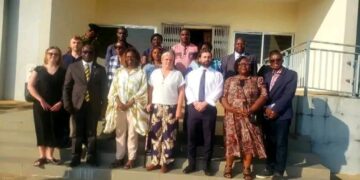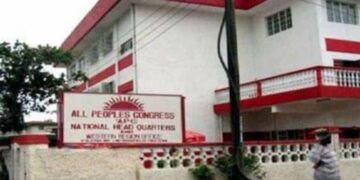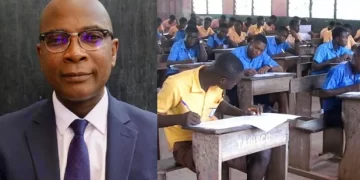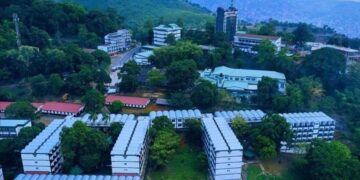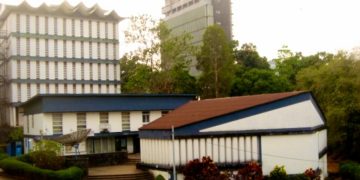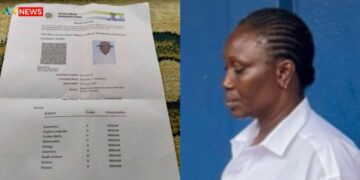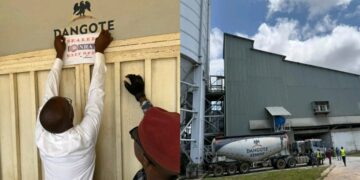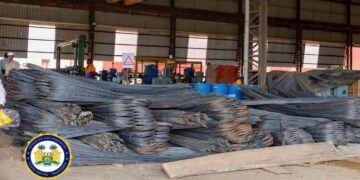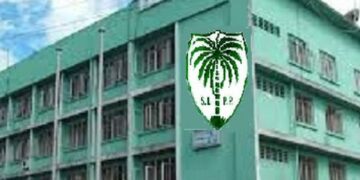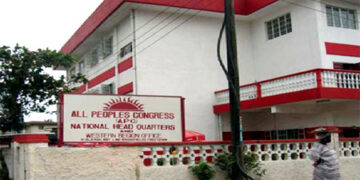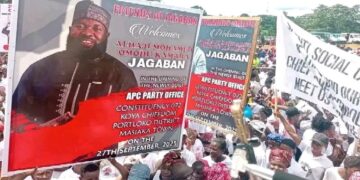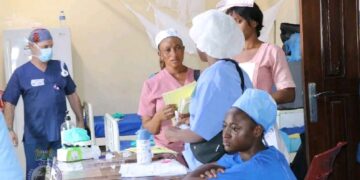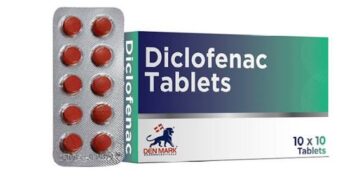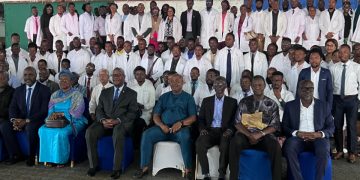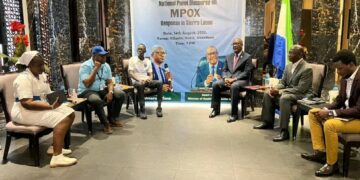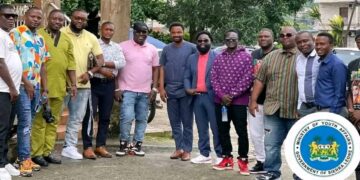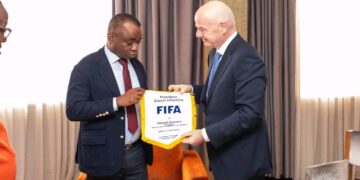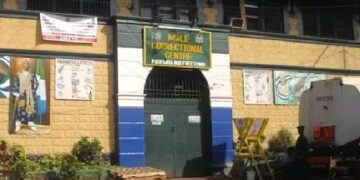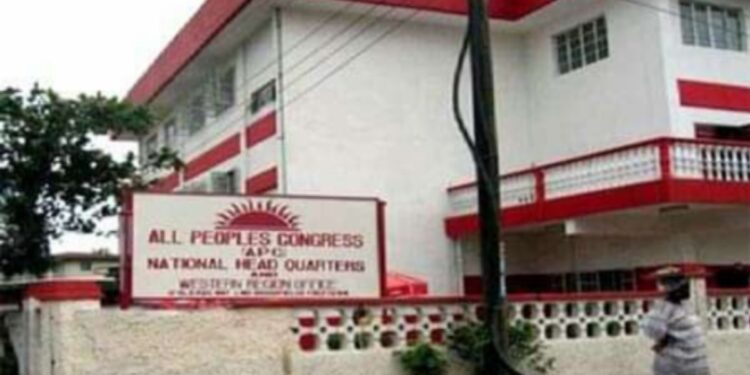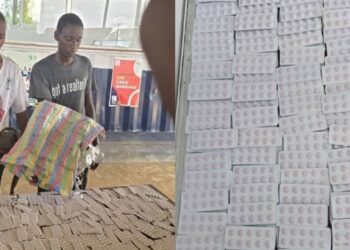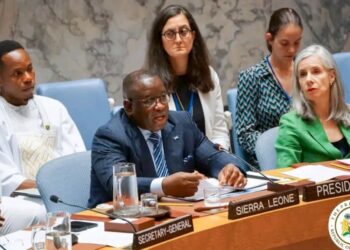The All Peoples’ Congress (APC) has issued a sharply critical public statement accusing the Tripartite Steering Committee Secretariat (TSCS) of breaching key procedural safeguards and undermining the credibility of the nationwide consultations mandated under Recommendation 78 of the Tripartite Committee Report.
In the notice published on Thursday, the main opposition party described recent actions by the TSCS as “troubling, unacceptable, and unilateral,” warning that such conduct threatens transparency, broad national participation, and the integrity of the democratic process the consultations are meant to uphold.
Concerns Over Omission of Key Details
Central to the APC’s complaint is the TSCS’s release of a national “Schedule for District Public Education and Civic Engagement Sessions,” which the party says was published without essential information such as the locations, timelines, and logistical arrangements of the planned district engagements. The APC argues that these omissions represent a direct violation of the procedural requirements outlined under Recommendation 78, which calls for clear, accessible, and fully disclosed information to enable proper participation.
The party emphasised that thousands of citizens across the country rely on accurate and timely details to effectively contribute to the democratic review process. By failing to provide this information, the APC says the TSCS risks alienating the public and weakening the legitimacy of the nationwide consultations.
Claims of Exclusion and Lack of Consensus
The APC also alleges that the schedule was released without consultation with its Chief Negotiator in the Agreement for National Unity (ANU), Dr. Kaifala Marah, and without any form of notification to its National Secretariat. According to the party, this violates the collaborative spirit on which the Tripartite Committee was founded, particularly given the sensitive nature of Recommendation 78, which aims to strengthen national democracy and restore confidence in the electoral system.
The party argues that unilateral decision-making of this nature undermines the essence of an agreement built on consensus, trust, and the shared responsibility of all stakeholders.
Allegations of Partisan Interference
Tensions escalated further after the APC accused a TSCS staff member, identified as Alimamy Lahai Kamara, of placing unsolicited calls to individuals—mostly in APC strongholds—inquiring about so-called “political infiltrators.” According to the APC, Mr. Kamara allegedly issued directives restricting the number of participants to be allowed into a planned public session in Falaba District on Saturday, 15 November 2025. The APC claims he instructed that only ten participants be admitted if “infiltrators” were detected, and fifteen if none were present.
The party condemned the alleged conduct as “unprofessional, inflammatory, and deliberately provocative,” insisting that Recommendation 78 is intended to guarantee open, inclusive, and unrestricted public participation across all districts. Any form of screening, political profiling, or conditional attendance, the APC argues, represents a dangerous departure from that mandate.
Reaffirming the Purpose of Recommendation 78
In its statement, the APC reiterated that Recommendation 78 is a democratic national exercise, not a partisan contest between the APC and the ruling Sierra Leone People’s Party (SLPP). It urged citizens across the country to attend the sessions peacefully, confidently, and within the bounds of the law, describing their participation as essential to safeguarding the integrity of the process.
APC Issues Five Urgent Demands
In response to what it views as a growing threat to public trust, the APC outlined a series of urgent demands directed at the TSCS:
1. Assurance of Mandate Integrity
The party is calling on the TSCS to publicly affirm that it is not serving as a partisan extension of the SLPP or being used as a state-controlled political instrument.
2. Independent Investigation
The APC wants an immediate and credible investigation into the actions of staff member Alimamy Lahai Kamara, stating that his alleged behaviour risks eroding public confidence in the entire consultation framework.
3. Public Apology
The party demands a formal apology to both the APC and the nation for what it describes as “unprofessional, politically provocative, and dangerous actions” that threaten the neutrality of the consultation process.
4. Removal or Resignation of Staff Member
The party insists that Mr. Kamara must either be removed from his position or compelled to resign, arguing that his continued involvement poses a risk to the credibility and neutrality of the TSCS.
5. Full Transparency in Consultation Schedule
Finally, the APC calls for a complete and detailed release of the consultation timetable, one that includes specific venues, dates, times, objectives, and participation procedures for all sessions across the country.
Warning Against “Secretive and Selective” Practices
The APC concluded its statement with a stern caution that any attempt to transform Recommendation 78 into “a secretive, selective political charade disguised as public consultation” will be firmly resisted. The party stressed that Sierra Leoneans deserve a process that is transparent, accessible, and reflective of democratic principles—not one overshadowed by suspicion or partisan manipulation.
With public consultations expected to begin soon, the unfolding dispute highlights growing political tension around the implementation of Recommendation 78 and the broader Agreement for National Unity—an agreement many hoped would help rebuild trust in the country’s electoral and governance systems.



